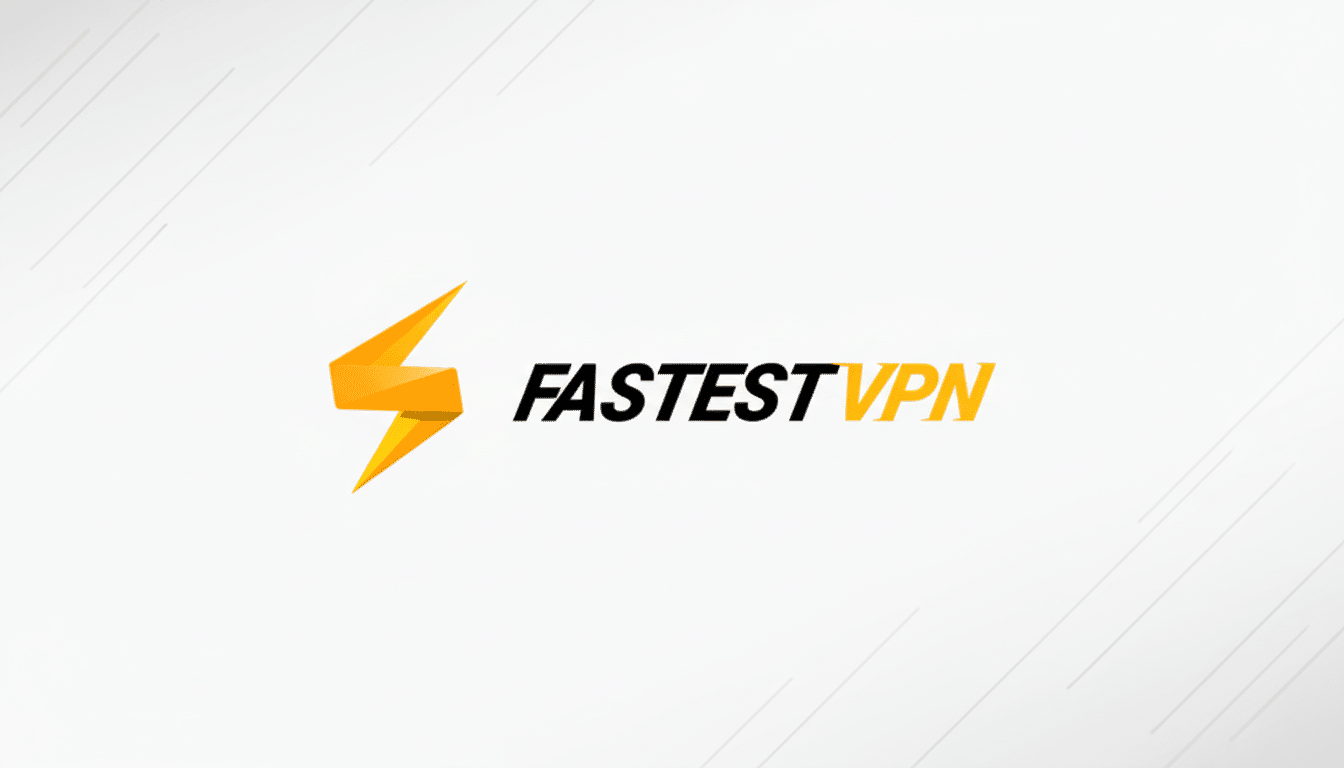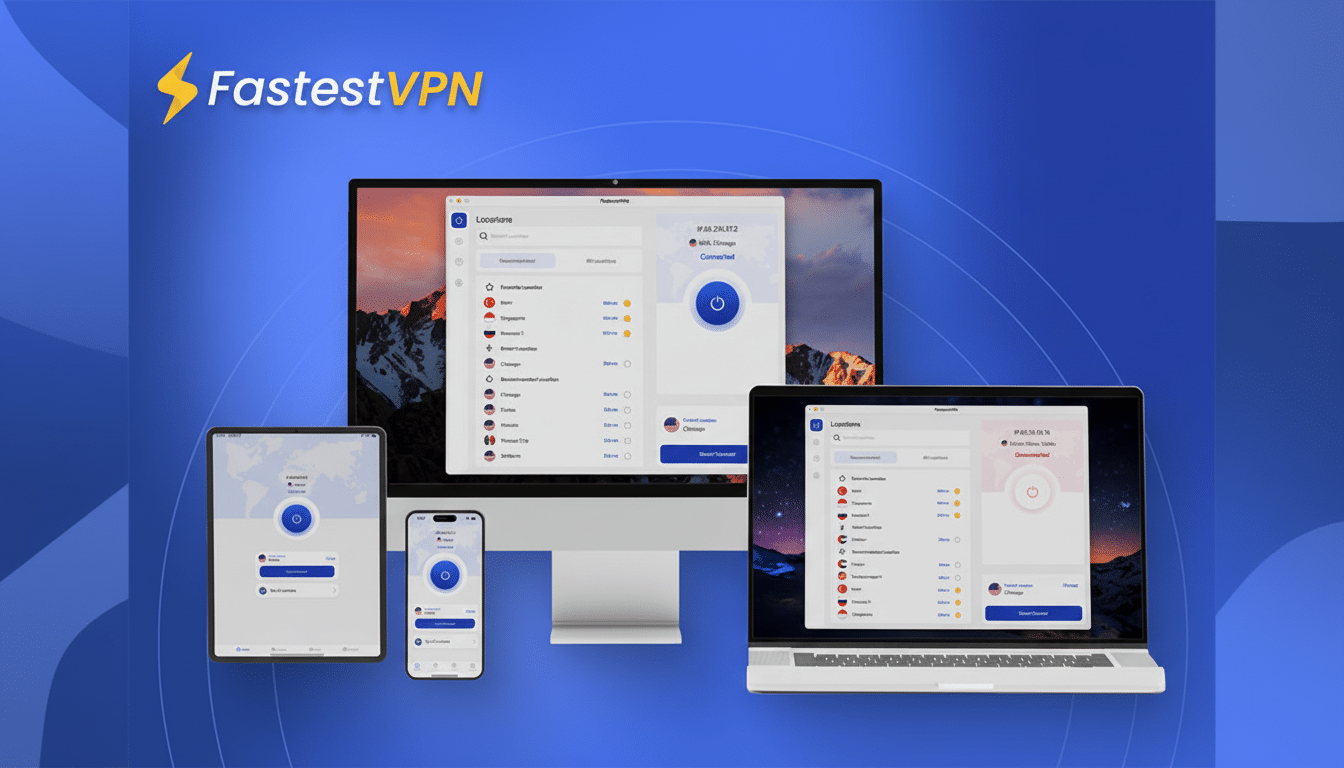A lifetime VPN deal is now making private browsing less expensive than a single year on most competitors. Access FastestVPN Pro; it’s on sale for just $39.99 — 93% off the retail value — while enjoying protection for up to 15 devices, along with encryption, ad-blocking and malware prevention, plus a built-in firewall.
What the $40 FastestVPN lifetime deal provides
The marquee feature is lifetime access, which puts an end to monthly re-upping. Originating in the British Virgin Islands, it offers 15 simultaneous connections for laptops, phones, tablets and some TV and router configurations on a FastestVPN Pro subscription, providing more than enough connections for a household or power user with multiple devices.

On the security front, the service’s encryption uses AES-256, and it also supports the WireGuard protocol. AES-256 is the industry maximum for data encryption, and WireGuard is known for its minimal codebase and impressive speed performance (sometimes even outpacing older choices like OpenVPN in real-world use). A kill switch will disconnect your internet in the event of a VPN tunnel faltering and giving away your IP address.
Privacy tools consist of an ad blocker, a malware blocker and a NAT firewall for preventing unwanted incoming traffic. Split tunneling makes it possible to select which apps go through the VPN and which do not, which can be helpful if you want your banking app to stay local but for your browser to travel through an overseas server. The company boasts P2P and streaming support and a no-logs policy, as well as servers in over 150 locations to ensure location hopping is constantly at your fingertips.
A one-year password manager subscription is included, at no additional cost. That add-on is designed to confront a different but related threat: weak or repeated passwords, which are still a mainstay of account takeovers.
How it compares on price with other VPN offers
Money is a factor. In the past few years, some VPN companies have offered bargain-basement pricing for their services and then paid bloggers to create online guides that recommend them as the best. There have even been suspicions of sabotage from opposition operators because they found a server operator was also hosting a competing service.
No reputable security company has ever recommended these things, but if you’re paying people to say good things about your products on tech-dominated platforms like Twitter and Reddit, then less savvy users might not know who those endorsements are coming from, or wonder why they’ve never seen companies so consistently praised on other platforms.
You get what you pay for. No VPN (or similar service) will be free from bugs, glitches, dropped connections, poor support, or any number of other issues all software can suffer with at one time or another.
Top photo: Jean Veazey / Flickr
Pros (according to IVPN):

- There’s ten years’ worth of experience in this Canada-based VPN provider.
- Advanced privacy features include Tor over VPN plus multi-hop.
- An audit confirmed no-logging claims.
It’s that math that makes lifetime deals eye-catching; a one-time $40 payment undercuts even generous multi-year promos.
The timing also comes as concern for privacy is on the rise. U.S. data compromises hit a record number in 2023, an increase of over 78% over the prior year, according to the Identity Theft Resource Center. The Verizon Data Breach Investigations Report 2024, for instance, discovered that the human factor — phishing, stolen credentials or social engineering — played a role in 68% of breaches, underlining why layered defenses like VPNs and password managers are still so needed.
Security and performance notes for FastestVPN Pro
WireGuard’s lean design (a few thousand lines of code compared to tens of thousands for older protocols) makes it easier to audit and generally quicker, which matters when you’re encrypting all your traffic on 15 devices. Even so, the speed depends on server quality as well as network congestion and distance, and between P2P and streaming points (servers) used.
The kill switch and NAT firewall are good safety measures, particularly if you regularly leave your device connected over public Wi-Fi where rogue servers and packet sniffing are still threats. Network-level ad and malware blocking shrinks the tracking profile, but it should work in tandem with (not replace) endpoint antivirus and browser-level protections.
Read the fine print on lifetime VPN subscriptions
“Lifetime” is nearly always the lifetime of the service, not your own. In practical terms, that means the license lasts as long as the provider still supports the product, so it’s a good idea to check conditions, refund windows, limits on devices, and whether some features (like the one that comes with a bundled password manager) will require renewal after the first year.
Be mindful of the provider’s privacy posture, too. A no-logs policy is table stakes; independent audits and transparency reports are better. Jurisdiction, server location (physical versus virtual), and support response times do matter, especially if you rely on P2P or want continuous access to streaming libraries that are busy blocking VPNs.
Who this FastestVPN lifetime deal is best for
Whether you have a household full of multiple devices, are constantly traveling for business and hopping on hotel or airport Wi-Fi, a degenerate cord-cutter that doesn’t believe in cable, or just want one consistent connection with your streaming TV obligations (and much more), there’s immediate value in the $40 lifetime license. Security maximalists and business users may still want providers with third-party audits, RAM-only servers or enterprise special features — but at this price, the calculus for everyday privacy is easy.
Bottom line: If you’re looking for basic online privacy tools without a recurring charge, this $40 FastestVPN Pro lifetime deal is a very low barrier to entry — assuming the feature set, policy details, and server footprint match how you actually use the internet.

